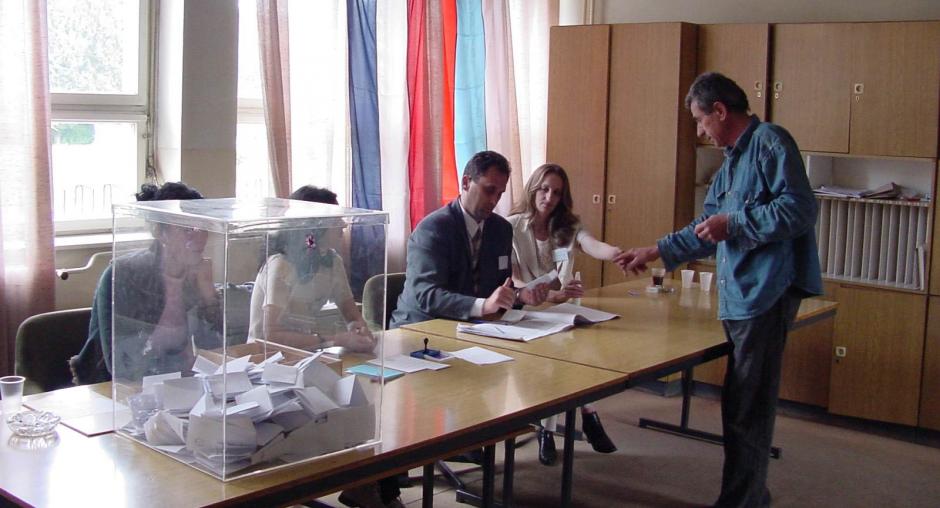Newsroom
After successful presidential election in Montenegro, time is right to address remaining challenges
PODGORICA 12 May 2003

Voting during last year's municipal elections in Montenegro. (Michael McNamara/OSCE) Photo details
PODGORICA, 12 May 2003 - Yesterday's presidential election in Montenegro was conducted generally in line with international standards, concluded the observation mission deployed by the OSCE's Office for Democratic Institutions and Human Rights (ODIHR).
After two failed attempts to elect a new president due to insufficient voter turnout, parliament recently cleared the way for a successful completion of the process by abolishing the minimum turnout requirement in line with a recommendation by the ODIHR.
"As a result of the reform of Montenegro's electoral framework over the past months and years, this election was conducted efficiently and on the basis of a greatly improved legislation", said Paul O'Grady, head of the ODIHR observation mission.
"Now that the latest series of electoral events is successfully completed, time is right to look at some of the underlying problems affecting the broader election environment", he added.
The observer mission expressed regret that the failure of major opposition parties to field a candidate narrowed the choice offered to the Montenegrin voters in what was generally a low-key and uneventful election process.
As in previous elections, the mission again raised concern over the incomplete separation of state and party functions in Montenegro. In this context, the mission also noted a continuing lack of confidence in certain state institutions among the opposition.
"These challenges should be addressed in the context of the ongoing process of institutional reform in Montenegro", said Mr. O'Grady.
After two failed attempts to elect a new president due to insufficient voter turnout, parliament recently cleared the way for a successful completion of the process by abolishing the minimum turnout requirement in line with a recommendation by the ODIHR.
"As a result of the reform of Montenegro's electoral framework over the past months and years, this election was conducted efficiently and on the basis of a greatly improved legislation", said Paul O'Grady, head of the ODIHR observation mission.
"Now that the latest series of electoral events is successfully completed, time is right to look at some of the underlying problems affecting the broader election environment", he added.
The observer mission expressed regret that the failure of major opposition parties to field a candidate narrowed the choice offered to the Montenegrin voters in what was generally a low-key and uneventful election process.
As in previous elections, the mission again raised concern over the incomplete separation of state and party functions in Montenegro. In this context, the mission also noted a continuing lack of confidence in certain state institutions among the opposition.
"These challenges should be addressed in the context of the ongoing process of institutional reform in Montenegro", said Mr. O'Grady.
